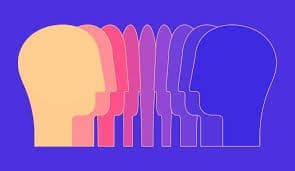Geoffrey Yang - WritingImportance of self-reflection

Every now and then, I like to sit back, look back, and most importantly, think back (if that makes sense). Why? Introspection and self-reflection is, I believe, one of the best ways for us individuals to look back on the past, and make better choices about what lies ahead of us. After all, everything is a decision; whether to write this blogpost right now, whether or not to go to an event tomorrow afternoon, or what to eat at your favourite restaurant next time.
What does reflection typically involve? Typically, this differs from person to person; as we all live very different lives, the content about what we reflect about will be drastically different from the person living right next door to you, which will be different from the person next door to them, and so forth. However, there are many typical processes that can be used to reflect. Some people may prefer an audio format, where they are able to dictate many of their experiences and lessons. Others are more inclined to type or write out messages on paper or on laptops and computers, as it may be much more efficient and it is easier to create a more visual image. Either way, I believe a sufficient reflection includes a few key features:
Raw, unfiltered thoughts.
Personal experiences — including seemingly insignificant experiences.
Important lessons learned and knowledge gained — not always positive.
Why is it necessary? First and foremost, self-reflection allows for better decision making. Now, this sounds extremely intuitive, but it’s safe to say that this benefit is often overlooked. After all, many of our decisions will come down to habit, other factors such as personal preference, or perhaps just jumping on the bandwagon. However, genuine reflection over past encounters or experiences, however simple, can catalyse future actions. Take John, a hypothetical researcher completing a second PhD paper on a revolutionary treatment for a specific pathogen. He is now in the stage where he will have to analyse thousands of possible drugs and drug configurations, not to mention other treatments. By the end of the first 3 months, he is extremely burnt out to say the least. Thankfully, there’s a month ahead … perfect for a bit of reflection. John thinks, “Is there a way where I’m able to eliminate a few hundred drugs at once? Perhaps there’s a trend I missed before. Intuitively, what happens if A and B are mixed with this strand?” OR “C was pretty unique; but D and E are similar to C and didn’t work. What happens now?” (This leads right on to the next benefit). By taking these smaller steps, it is much easier to see that sooner or later, John may catch onto some better decision making methods, which may make his life a whole lot easier.
Self reflection stimulates curiosity. And just from that hypothetical situation above, I’ve already come up with a list of questions that could be asked. Of course, real research is nowhere near that simple, and scientists, economists, mathematicians, historians etc are using their time, day in and day out to solve many of the blazing conundrums that each respective field has. But many of these conundrums are expanded upon by reflection. For instance, in any random field, take mathematics, David Harvey and Joris Van der Hoeven’s multiplication paper in O (n log n) built upon previous works of Schonhage and Strassen in 1971. Note that one’s career is only a small fragment of self reflection, and the same principle can be applied to many other areas of life. Curiosity though, is what drives our society forward, and pushes discovery and wonders beyond human imagination.
What about if I have absolutely nothing to think about? Perhaps life is going great, or incredibly monotone so that one may feel no encounter is significant enough to document. This leads to the third benefit, a greater increase in our productivity! Many new technologies today do not necessarily replace old technologies because they perform completely different functions. Rather, they build upon these functions by making them more efficient. The same can be said for what we do on a daily basis. As an extremely simple example, take Jane, a uni student who has to make the same trip from uni to Street A every day for 3 months for her recent internship. The journey takes 1.5 hours, and she passes by Towns B and C on the way. A week in, she resorts to calling Ubers, as she cannot afford the time. However, later on, after doing some journaling, her curiosity prompts her to check the timetable, and lo and behold, there is a direct line which cuts her travel time in half! Although not everything will be guaranteed to be THIS simple, many of the benefits still apply, and as the old saying goes, if you look hard enough for something, you’ll probably find it.